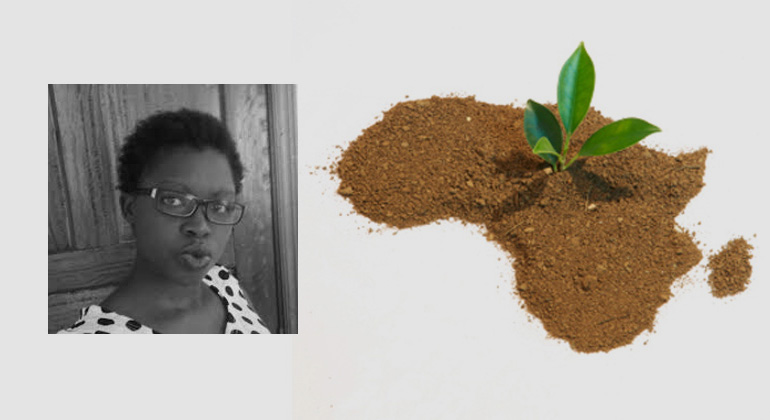The Women Can Champion Use Of Renewable Energy
Women in Africa are excessively responsible for household duties like fetching firewood for heating, lighting and cooking. Most women, particularly those in rural areas, depend on natural resources. However, because of climate change challenges such as drought, deforestation and unreliable rainfall, these women are unable to access the natural resources.
Human activities, including charcoal burning and industrial operations contribute to climate change. Women as well contribute to climate change while making ends meet for their families.
In Kenya, women can be efficient drivers of renewable energy. Their activities require sustainable and reliable as well as cheaper energy sources like solar. Those activities generate income to the women. Women operating fish businesses, particularly those dealing with omena, depend on the sun’s heat to dry their fish. Often, women spread their fish along the lakeshore. It is common among women operating around Lake Victoria.
During rainy seasons, there is little to no sunlight, this means the omena will not dry. The longer it takes to dry, the less the amount of omena supplied to the market. The women end up losing money. Because of the high number of women in the omena business, it would be beneficial to establish drying mechanisms powered with solar energy. Solar energy can be stored for use during rainy seasons.
Most households in Africa still depend on kerosene as a source of lighting. Kerosene contains hydrocarbons that contribute to global greenhouse gas emissions in the atmosphere causing global warming. Kerosene is not clean. It poses health implications. It causes respiratory problems. Kerosene is expensive.
Solar lanterns and solar panels have become common in the rural areas. People can satisfactorily watch television and listen to radios courtesy of solar power. Charging mobile phones, torches and powering mills is now easier with solar power.
Mobile service providers and innovators have teamed up to ensure solar power is accessible to persons living in the rural areas. Safaricom Limited, one of the largest mobile service provider in Kenya through its Mpesa mobile money transfer has made it easy for rural dwellers to light and power their homes and businesses with solar. By paying their solar lantern via Mpesa money has improved their living styles.
Climate change effects have led to inadequate firewood. Biomass energy from animal products should be encouraged. Every home in rural areas has at least a goat, sheep or cow. Women are responsible for cleaning animal droppings, which is mainly used to reduce biomass energy. Educating these women and supporting them establish biomass power plants in their homes will enable uninterrupted lighting, heating and cooking.
Poultry farming is a common venture among women. It would be expanded and strengthened when there is reliable supply of power. Biomass energy would enable women undertake the activity successfully. Biomass energy source is renewable, clean and sustainable. It can be used for lighting, cooking and heating at the same time. The energy sector has progressively improved. However, there is still an energy crisis. A significantly small percentage of renewable energy can be reported globally.
World Bank’s global tracking framework report indicates that renewable energy accounted for only 18 percent of the global energy mix in 2010. A 1.3 percentage improvement was reported from 1990 to 2010. The figure needs to double.
World Bank further stated that 1.2 billion people globally had no access to electricity while 2.8 billion people rely on wood or other biomass for cooking and heating their homes. Fundamentally, 80 percent of this population is said to live in sub-Saharan Africa.
Because of the increasing energy poverty, various initiatives have been established targeting rural homes. Women are the main beneficiaries. President Barrack Obama’s Power Africa project is a notable initiative that has already kicked off in most parts of sub-Saharan Africa.
RnB singer Akon through his initiative, Akon Lighting Africa has recognized the energy inefficiency in Africa. The initiative that trains local African entrepreneurs and engineers on solar power productions aims to bring solar power to more than 600 million homes.
While it is clear that women can influence a drastic shift to renewable energy, it is important to consider women as equal partners in climate change decision-making processes.
Information is power. The more the women who understand the causes and effects of climate change, the higher the chances of developing mitigation and adaptation measures. In fact, women face the consequences of climate change more than men do.
Lack of energy impinges women’s freedom. In order to attain this freedom, women can actively engage in advocating for cleaner energy.
Since women always want the best for their families. They will be willing to forego activities that deplete natural sources in order to preserve for future generations. Women are better in upholding sustainable resource utilization.
Nevertheless, governments should consider women as agents of change. Women should be considered to participate in all stages of strategising and executing energy development prospects and especially renewable energy.
Source
SUN-CONNECT 2015 | the STAR / Caroline Kibii is an environmentalist 2015








